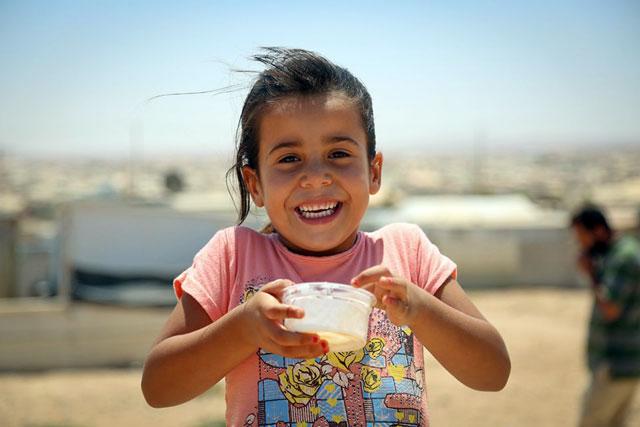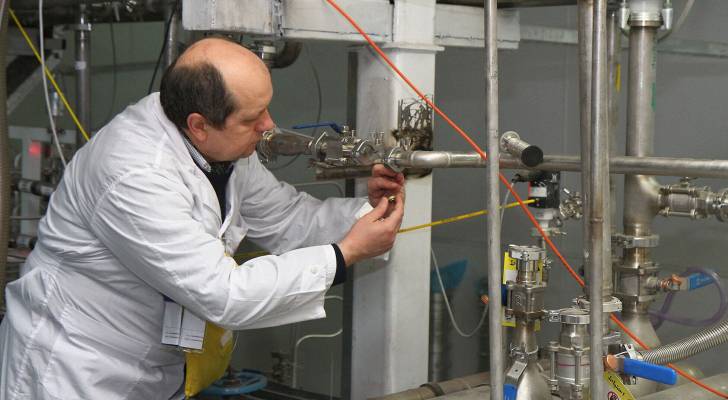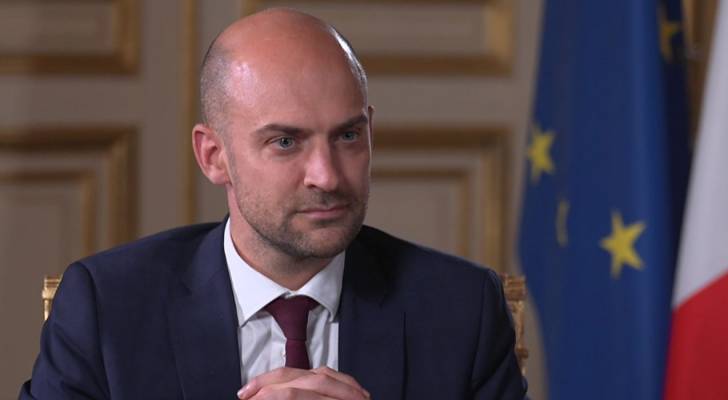NRC maintains support for refugees, host communities despite fund shortage

The Jordan Times
AMMAN — The Norwegian Refugee Council (NRC) in Jordan continues its support of refugees and vulnerable Jordanians despite global funding cuts. According to the UN Financial Tracking Service, humanitarian organisations have received only 16.3 per cent of the funds needed to continue to aid the 12 million displaced Syrians.
According to the NRC’s numbers, the organisation supports around 265,000 refugees and 27,000 vulnerable Jordanians through its evolving Shelter, Youth, Livelihoods, Education and Information Counselling and Legal Assistance (ICLA) programmes.
“It’s understood that, traditionally, funding changes and reduces at a different pace at different locations in different ways, but unless you adapt at one point, you will fall off the cliff,” NRC country director Muriel Tschopp told The Jordan Times on Sunday in an interview about the current state of the organisation.
Whatever happens, the main goal, she says, is to “make sure that refugees aren’t forgotten”.
As part of their strategy to cope with funding cuts while keeping pace with the changing needs of their beneficiaries, Tschopp said that the work of the NRC is transitioning from emergency assistance to equipping Syrians to work and live in Jordan.
“I think the organisation has evolved in line with how the crisis has evolved,” Tschopp said, noting that after 80 per cent of refugees moved into host communities, NRC added a host component to its programme that partners with local organisations like the Jordanian Centre for Legal Aid.
“Refugees in the camp are in a set area, so it’s very much a humanitarian response. In the host communities, refugees have some needs that are similar to Jordanians and some needs that are different,” she said.
One of the NRC’s services that has changed significantly since the organisation began working in Jordan is its education programme, which expanded its efforts “exponentially” last year in collaboration with the Ministry of Education.
Whereas previously refugees studied exclusively in camp learning centres, the new agreement has opened 10 ministry-run camp schools and 17 schools in host communities, allowing NRC to reach more than 24,000 children this year and provide teaching opportunities to the Syrian learning centre facilitators.
“We work with [the Syrian facilitators] to provide the extra support that kids who struggle in school need to have,” Tschopp said.
The NRC is also working to expand its ICLA initiative. The legal and civil documentation programme partners with local NGOs to make Syrians and vulnerable Jordanians aware of their rights and provide them with support and advocacy.
Tschopp noted that while the most immediate needs involve cash, food and shelter, Syrians face significant challenges if they lack proper certificates and documentation.
“If you are married in Jordan and you lose your marriage certificate, you can go and get it reissued. If you were married in Syria and your house was bombed and you ran away and don’t have your marriage certificate, you can’t call up a civil registry, so you have to end up bringing witnesses, doing a lot of kind of additional steps… If you cannot prove that you’re married, your kid will not get his birth certificate,” she explained.
Over 55,800 people made use of ICLA’s legal centres between January and May of this year.
According to the 2018-2020 Jordan Response Plan, which summarizes the needs of Syrians and Jordanians as they continue to cope with the refugee crisis, around $2.5 billion are needed this year to strengthen current programmes and increase the community’s resilience in supporting refugee families.
Around 85 per cent of refugees still live under the poverty line, according to the UNHCR.
Tschopp said that continued support and awareness of the crisis is essential.
“The problems [refugees] are facing are more complex than [the ones] they were facing before. And so our job as an organisation is to adapt, but your job as a financial community is to keep with us,” she said.
Latest News
-
 Nuclear inspectors leave Iran after country suspends cooperation with UN watchdog
Nuclear inspectors leave Iran after country suspends cooperation with UN watchdog
-
 Taliban hails Russia’s “brave decision” of recognizing Afghanistan rule
Taliban hails Russia’s “brave decision” of recognizing Afghanistan rule
-
 Germany considering buying Patriot air defense systems for Ukraine
Germany considering buying Patriot air defense systems for Ukraine
-
 Saudi Arabia activates US made THAAD missile defence system
Saudi Arabia activates US made THAAD missile defence system
-
 France says Iran sanctions hinge on release of detained citizens
France says Iran sanctions hinge on release of detained citizens